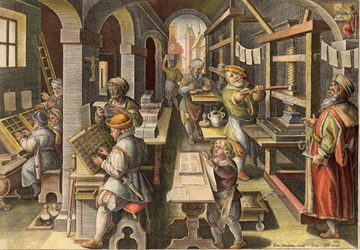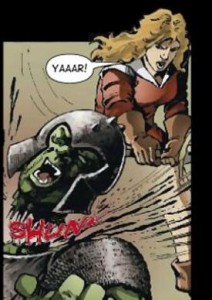John Grisham on NBC’s Today Show discusses his new book, writing novels versus short stories, and so-called predatory book pricing by large retailers like Walmart, Target and Amazon.com. I like Grisham in this interview. He’s a good interview and he seems sharp. He talks about how it’s much more difficult to fix a problem in the middle of writing a novel than to do so with a short story. So he advises writers to ‘not have a problem.’ The trick is to thoroughly outline your entire novel before you even start to write it so that you know every single thing that happens along the way. Pretty sound advice in most cases. Not all. Some of the greatest novels in the world were written by writers who had absolutely no idea where the novel was going from page one. It depends on what kind of book you’re writing. I think his advice is perfectly good for most books that are intended for sale in a grocery store. Certainly. But writers should never listen to famous writers. They’re full of crap. You write what makes you sweat and drink lots of coffee late into the night and bang your fingers on your keyboard until they hurt. Or not. Whatever. I hate outlines. Especially in word processors. Awful things. They destroy good minds and belong mostly in PowerPoint presentations for corporate managers. I’m not sure what the hell Grisham is talking about quite frankly. But then again, I’m not selling thrillers in the grocery store either.
But what mainly interests me in this interview is the discussion about ‘predatory pricing’ by the giant retailers. Apparently, if you listen to publishers, this spells doom for publishing and book selling as we know it. When asked what he thinks about his latest book being available for nine dollars at Target, Grisham says:
It’s shortsighted. Short term, they know what they are doing, I think. But if a book is worth $10 then suddenly the whole industry is going to change. You are going to lose publishers and book stores, and though I’ll probably be alright, aspiring authors are going to find it difficult to get published.
Yeah? So what. So we lose publishers and book stores. Who cares? The key in Grisham’s statement is where he says, ‘…and though I’ll probably be alright.’ He means writers will be alright. The big scary fact of the matter is that we simply don’t give a tiny damn whether or not a publisher prints a book or an author does. Publishers read, accept, edit, design, print and promote books. At least they used to. I don’t care what anyone tells you, but we do not need the editors. Writers can do that. You write the book and you edit it and you’re done with it. Readers are getting used to reading writers without editors. That’s why blogs are so popular. No editors. If you have an editor poking around in a blog, trust me, it’s not a blog. It’s a corporate front-end. A writer can also design and print a book. And sell it. Writers are publishers. No reader cares about Penguin. They care about the guy holding the gun. The guy holding the gun is put there by the writer. Writers will make guys, guns and gals forever. It’s what they do and it’s what readers want.
I don’t care if the guy with the gun says, ‘I’ve been looking for you for a long time, Mr. Peabody. Smile, because it’s the last thing you’ll ever do.’ Or if he says, ‘I’ve been looking for you. Smile. It’s your last.’
The writer can pick. The editor can go watch Kitchen Nightmares.
There is absolutely no excuse for a writer to work hard on a story, hammering it into existence from nothing, polishing it and making it exactly what he or she wants it to be… and then sit around to wait for some agent or publisher to get back via the U.S. mail so that said writer can be allowed to move on and send out yet another plea for acceptance. This is old technology. Twentieth century. It’s gone. In this century a writer writes and edits and publishes and sells. His book can sell in Target for nine dollars or three dollars. Magnificent. Literature available to people who don’t make lots of money. What a novel idea! If you’re griping about Target selling books for nine dollars, you must not be buying books. Go watch His Girl Friday and pretend that typewriters still make newspapers.
And you know something else? The guy with the gun doesn’t care. He’ll always be there. He’s not going anywhere. All the publishers and book stores could burn and all the editors could go to their early graves, and you know what? The guy with the gun is still gonna getcha. He’s going to find you wherever you go. He’s alive.
 Here’s a reprint of a fascinating and well thought out
Here’s a reprint of a fascinating and well thought out  The Nation has a fascinating essay by Elisabeth Sifton called
The Nation has a fascinating essay by Elisabeth Sifton called 
 Look at the image to the left. If that image disturbs you to the point of banning the comic book, you are unintelligent. No doubt about it. It disturbs Apple so much that they’ve removed the comic book from their App Store. Clear censorship. The
Look at the image to the left. If that image disturbs you to the point of banning the comic book, you are unintelligent. No doubt about it. It disturbs Apple so much that they’ve removed the comic book from their App Store. Clear censorship. The 